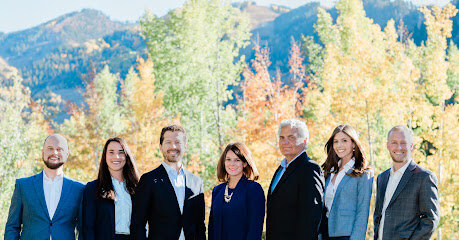Best Elder Abuse Law Lawyers in Colorado
Share your needs with us, get contacted by law firms.
Free. Takes 2 min.
Or refine your search by selecting a city:
List of the best lawyers in Colorado, United States
About Elder Abuse Law in Colorado, United States
Elder Abuse Law in Colorado is designed to protect adults aged 70 and older from various forms of abuse, neglect, and exploitation. This legal framework covers physical, emotional, and sexual abuse, as well as financial exploitation and caregiver neglect. Colorado takes elder abuse seriously and has set up mandatory reporting laws for certain professionals and agencies to help detect and stop abuse early. Laws are in place to safeguard the rights, dignity, and safety of older adults across the state.
Why You May Need a Lawyer
People may need legal help with elder abuse for several reasons. Some of the most common situations include:
- Suspecting a loved one is experiencing abuse, neglect, or financial exploitation in a nursing home or by a caregiver.
- Being accused of elder abuse and needing to defend yourself against allegations.
- Seeking financial compensation or recovery of assets that have been misappropriated from an elderly person.
- Needing help with restraining orders or civil protection orders to keep perpetrators away from elders.
- Dealing with agencies such as Adult Protective Services or law enforcement during an investigation.
- Navigating guardianship, conservatorship, or other legal arrangements that may be necessary to protect the interests of an elderly person.
An experienced elder abuse lawyer can guide you through these complex situations, explain your rights, and advocate on your behalf to ensure the elderly person is protected.
Local Laws Overview
Colorado law defines elder abuse under the Colorado Revised Statutes Title 18 Article 6.5 and Title 26 Article 3.1. Adults over the age of 70 are specifically protected by these statutes. Key aspects of Colorado elder abuse law include:
- Mandatory Reporting: Certain professionals, such as doctors, nurses, law enforcement officers, clergy, and care facility workers, are required to report suspected elder abuse to law enforcement within 24 hours.
- Types of Abuse Covered: Physical, emotional, and sexual abuse, financial exploitation, abandonment, and caretaker neglect are all covered under Colorado statutes.
- Criminal and Civil Penalties: Offenders may be prosecuted criminally or held liable in civil court, depending on the circumstances of the abuse.
- Investigative Bodies: Adult Protective Services (APS), law enforcement, and the district attorney's office all play roles in investigating and prosecuting cases of elder abuse.
- Protection Orders: Courts can issue restraining or protective orders to help keep abusers away from elderly victims.
Understanding these local laws is crucial to protecting the well-being and assets of seniors in Colorado.
Frequently Asked Questions
What is considered elder abuse in Colorado?
Elder abuse includes physical, emotional, or sexual harm, financial exploitation, neglect, and abandonment of adults aged 70 and older. It can occur in private homes, nursing homes, or other care facilities.
Who is required to report suspected elder abuse in Colorado?
Under Colorado law, professionals such as healthcare workers, law enforcement, social workers, and others must report suspected abuse within 24 hours of learning about it. Failure to do so may result in penalties.
How do I report elder abuse in Colorado?
You can contact your local law enforcement agency or Adult Protective Services. For immediate danger, call 911. Non-emergencies can be reported through the county APS office or the statewide hotline.
What happens after elder abuse is reported?
After a report, authorities like APS and law enforcement will investigate the situation. They may interview the elderly person, caregivers, and witnesses, and take steps needed to protect the individual, which could include issuing protective orders or recommending medical attention.
Can I sue someone for elder abuse in civil court?
Yes, victims and their families can pursue civil lawsuits for damages resulting from abuse, neglect, or exploitation. This may involve seeking compensation for medical costs, emotional distress, lost assets, and other related damages.
What is financial exploitation under Colorado law?
Financial exploitation refers to the illegal or improper use of an elderly person’s funds, property, or assets. Examples include forging checks, coercion to change a will, or unauthorized use of credit cards.
Are there criminal penalties for committing elder abuse?
Yes, perpetrators may face misdemeanor or felony charges, depending on the severity and circumstances of the abuse. Convictions can result in imprisonment, fines, or both.
What protections exist for victims during legal proceedings?
Victims may obtain protective or restraining orders, and the court can take steps to ensure the safety and privacy of the elderly person during legal proceedings. Support services and advocacy are also available.
Can family members initiate legal action on behalf of an elderly relative?
If the elderly person is unable or unwilling to act, family members with legal standing, such as guardians or conservators, can initiate legal proceedings to protect the person's rights and assets.
How can a lawyer help in an elder abuse case?
A lawyer can navigate complex legal processes, represent the victim or family in court, gather evidence, communicate with authorities, and ensure compliance with mandatory reporting and protective measures.
Additional Resources
- Adult Protective Services (APS): Provides investigation and support for suspected elder abuse cases throughout Colorado.
- Colorado Department of Human Services: Offers information, forms, and guidance for reporting and preventing elder abuse.
- Local Law Enforcement Agencies: Responsible for responding quickly to immediate threats and conducting criminal investigations.
- Colorado Bar Association: Can help connect you with lawyers experienced in elder law and abuse cases.
- Long-Term Care Ombudsman Program: Advocates for residents of nursing homes and helps resolve complaints about care or conditions.
- Legal Aid Organizations: Provide free or low-cost legal advice to older adults and their families in Colorado.
Next Steps
If you suspect elder abuse or are facing issues related to the mistreatment of an elderly person, it is critical to act quickly. Start by ensuring the immediate safety of the person involved. Then, report your concerns to authorities such as Adult Protective Services or local law enforcement. Document all relevant information including incidents, dates, and witnesses.
Consulting with an experienced Colorado elder abuse lawyer can help you navigate the legal process, protect your loved one’s rights, and pursue any civil or criminal remedies available. Most lawyers offer an initial consultation to assess your situation and advise on the best course of action. Taking early legal action can prevent further harm and hold responsible parties accountable.
Lawzana helps you find the best lawyers and law firms in Colorado through a curated and pre-screened list of qualified legal professionals. Our platform offers rankings and detailed profiles of attorneys and law firms, allowing you to compare based on practice areas, including Elder Abuse Law, experience, and client feedback.
Each profile includes a description of the firm's areas of practice, client reviews, team members and partners, year of establishment, spoken languages, office locations, contact information, social media presence, and any published articles or resources. Most firms on our platform speak English and are experienced in both local and international legal matters.
Get a quote from top-rated law firms in Colorado, United States — quickly, securely, and without unnecessary hassle.
Disclaimer:
The information provided on this page is for general informational purposes only and does not constitute legal advice. While we strive to ensure the accuracy and relevance of the content, legal information may change over time, and interpretations of the law can vary. You should always consult with a qualified legal professional for advice specific to your situation.
We disclaim all liability for actions taken or not taken based on the content of this page. If you believe any information is incorrect or outdated, please contact us, and we will review and update it where appropriate.
Browse elder abuse law law firms by city in Colorado
Refine your search by selecting a city.












